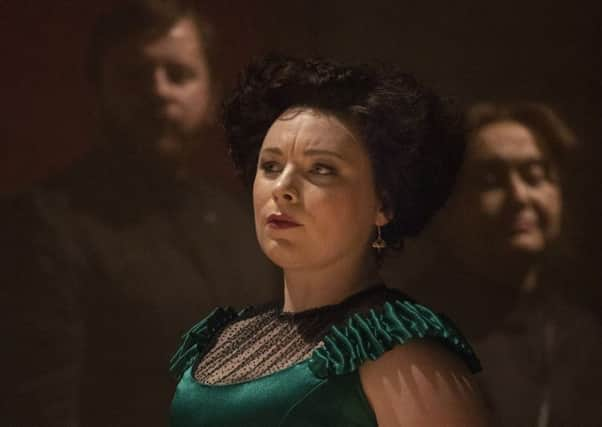Opera review: Scottish Opera - Eugene Onegin


Scottish Opera - Eugene Onegin, Theatre Royal, Glasgow ***
It was the one (unintended?) light moment in an unflinchingly serious three-and-a-quarter hours. This is not, after all, an opera geared to laughs. But as Onegins go, Mears’ reflective concept – the additional omnipresence of an elderly Tatanya reliving, as a silent observer, the wretchedness and naivety of her young love for Onegin – is especially stern and stoical.
It’s an intriguing and potentially fascinating take on a familiar opera, and the older Tatanya’s closing gesture, the ripping up of the letter that had set events in motion, bears a conclusive and liberating symbolism in relation to her younger troubled self. But there’s a price to pay in a production that casts the lighter crowd scenes into the shadows, concentrating exclusively on frontline individuals.
Advertisement
Hide AdIt is, without respite, a grey affair, set in a bare, soulless drawing room, its claustrophobic shutters struggling to let in periodic faint rays of light, or equally to keep out the icy blasts that chill the atmosphere. The chorus is banished, mostly silhouetted, behind a screen, which effectively mutes their vocal presence, and the ball relies exclusively on a single ballerina, Eve Mutso.
The trouble with the subsequently prominent front-line cast is that they are mostly okay, but not altogether outstanding. Natalya Romaniw’s Tatanya offers the most riveting sung performance, the oaky foundation of her voice embodying the torturous confusion she bears. As Olga, Sionad Gwen Davies finds essential joie de vivre. Peter Auty’s Lensky is convincingly sincere, but inconsistent in the higher tessitura. The all-important Onegin, a muscular Samuel Dale Johnson, cuts a cold aristocratic dash, but doesn’t always capture the full emotional range in his singing.
And there are inconsistencies in the pit, where Scottish Opera Orchestra, under Stuart Stratford, is too often rough and ready, failing to stoke the fire when the score reads red-hot, or capture those magical moments of sublime intensity.
Theatre Royal, Glasgow, 2-5 May; His Majesty’s Theatre, Aberdeen, 10-12 May; Eden Court, Inverness, 15-19 May; Festival Theatre, Edinburgh, 23-31 May